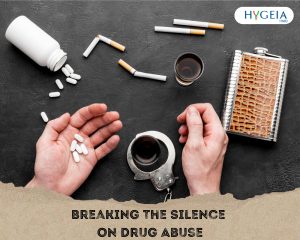There are a few reasons why you are encouraged to take a bath at least twice a day but eczema is not one of them. You may want to object with the long-standing narrative that eczema is caused by poor personal hygiene. However, that belief is a thousand miles farther from the truth. Let’s start by understanding what eczema means, as well as consider its various myths and facts.
Eczema, also known as atopic dermatitis, is a common skin condition that affects millions of people worldwide. It is characterized by dry, itchy, and inflamed skin. Eczema is a chronic skin condition that is often associated with a compromised skin barrier. The skin’s natural protective barrier becomes weakened, allowing irritants and allergens to penetrate the skin more easily, leading to inflammation and itching.
Eczema is a common skin condition that can be influenced by personal hygiene practices. However, there are several myths and misconceptions surrounding the relationship between eczema and hygiene.
Myths vs. Facts
- Myth 1: Eczema is caused by poor personal hygiene.
Fact: Eczema is not caused by inadequate personal hygiene. It is a complex skin condition with genetic, environmental, and immune system factors at play. While maintaining good personal hygiene is essential for managing eczema, it is not the root cause of the condition.
- Myth 2: Frequent bathing worsens eczema.
Fact: While it’s true that excessive bathing with hot water or harsh soaps can dry out the skin and exacerbate eczema symptoms, regular bathing with lukewarm water and mild, fragrance-free cleansers can be beneficial. It helps remove irritants and bacteria from the skin’s surface, preventing infections and maintaining skin health.
- Myth 3: Eczema is contagious.
Fact: Eczema is not contagious. It is a non-communicable skin condition that results from a combination of genetic and environmental factors. You cannot “catch” eczema from someone who has it.
- Myth 4: Scratching eczema helps relieve itching.
Fact: Scratching eczema can provide temporary relief, but it ultimately worsens the condition. Scratching damages the skin’s barrier, making it more susceptible to infection and leading to a vicious cycle of increased itching and scratching. It is crucial to find alternative ways to relieve itching, such as using moisturizers or prescribed medications.
- Myth 5: Eczema is only a childhood condition; it will disappear with age.
Fact: Eczema can affect individuals of all ages, including adults. While some children may outgrow their eczema, many continue to experience symptoms into adulthood. Effective management strategies are essential for maintaining skin health throughout life.
- Myth 6: Natural or homemade remedies are always safe and effective for eczema.
Fact: While some natural remedies may provide relief for eczema, they can also be irritating or allergenic for sensitive skin. It’s essential to consult with a dermatologist before trying any new treatments, whether they are natural or conventional, to ensure they are safe and appropriate for your specific condition.
- Myth 7: Eczema cannot be managed effectively.
Fact: Eczema can be managed effectively with the right approach. This typically involves a combination of proper skincare, avoiding triggers, using prescribed medications if necessary, and seeking guidance from a healthcare professional or dermatologist. Many individuals with eczema lead healthy, comfortable lives with proper management.
- Myth 8: Eczema is just a skin problem; it doesn’t impact overall health.
Fact: Eczema can have a significant impact on a person’s overall well-being. It can lead to sleep disturbances, emotional stress, and reduced quality of life. Additionally, open sores and cracked skin can increase the risk of infections. Managing eczema effectively is essential for both skin health and overall health.
Eczema and Personal Hygiene
Proper personal hygiene is vital for everyone, but it is particularly crucial for individuals with eczema due to their sensitive skin. The main goals of personal hygiene for eczema sufferers are to:
- Maintain Skin Hydration: Keeping the skin well-hydrated is essential for eczema management. Use mild, fragrance-free moisturizers regularly to prevent dryness and itching.
- Minimize Irritants: Eczema-prone skin is highly sensitive to irritants. Avoid using harsh soaps, detergents, and skincare products that contain fragrances, alcohol, or dyes. Opt for gentle, hypoallergenic products instead.
- Practice Gentle Cleansing: When cleansing the skin, use lukewarm water and a mild, soap-free cleanser. Avoid hot water, as it can strip the skin of its natural oils and exacerbate dryness.
- Pat, Don’t Rub: After washing or bathing, pat your skin gently with a soft towel rather than rubbing vigorously. This helps prevent further irritation.
- Short, Lukewarm Showers: Long, hot showers can be tempting, but they can worsen eczema symptoms. Keep showers short and use lukewarm water to avoid drying out the skin.
- Choose the Right Clothing: Wear loose-fitting, breathable clothing made from natural fibers like cotton. Avoid wool or synthetic fabrics, as they can irritate the skin.
- Trim Your Nails: Keeping your nails short and smooth can help prevent unintentional scratching, which can break the skin and lead to infections.
- Regular Hand Washing: Frequent hand washing is crucial for personal hygiene, especially in the current global health climate. However, it can also lead to dry and cracked skin. Be sure to moisturize your hands after washing.
- Avoid Triggers: Identify and avoid specific triggers that exacerbate your eczema. These triggers can include certain foods, allergens, stress, or climate conditions.
- Consult a Dermatologist: If your eczema is severe or not responding to over-the-counter treatments, consult a dermatologist for personalized care and recommendations.
Conclusion
Eczema can be a challenging condition to manage, but by prioritizing proper personal hygiene practices, individuals with eczema can significantly reduce the frequency and severity of flare-ups. Remember that consistency is key, and it may take some trial and error to find the right skincare routine and products that work for your unique skin. Always consult with a healthcare professional or dermatologist for personalized advice on managing your eczema and maintaining optimal personal hygiene. With the right care and attention, you can enjoy healthier, more comfortable skin.




